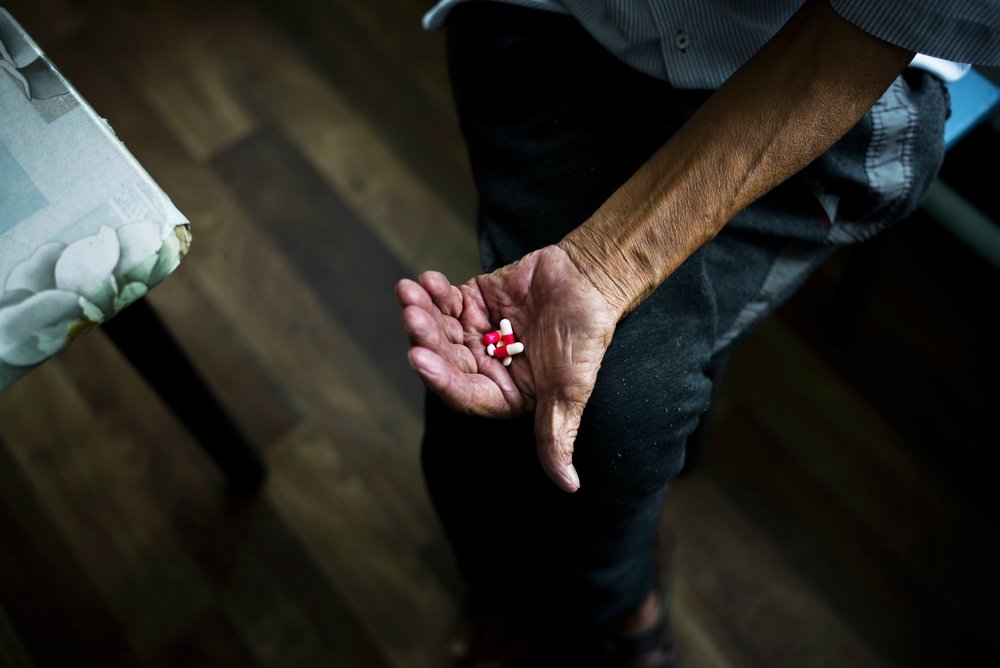In Kyrgyzstan, we are working closely with the Ministry of Health, and offering our support for COVID-19 preparedness planning, with a specific focus on our areas of operation in Kadamjay Rayon and Batken Oblast. Today, we provided the Ministry of Health with personal protective gears including N-95 masks and gloves, thermometers, chlorine tablets and alcohol pads.
Can you make a donation to support our COVID-19 response?
One of the poorest nations in the Central Asian region, Kyrgyzstan has an inadequate healthcare system, experiencing frequent shortages, and today, many people struggle to access free treatment for drug-resistant tuberculosis (DR-TB).
The country became independent in 1991 following the breakup of the Soviet Union. Ethnic Kyrgyz, most of whom are Turkic-speaking Muslims, make up the majority of the country's 5.6 million population.
MSF first worked in Kyrgyzstan in 2005, providing healthcare for people who would otherwise go without.
Tuberculosis Treatment
Tuberculosis (TB) is one of the 10 leading causes of death globally, the bulk of mortality rates occur in low- and middle-income countries. Kyrgyzstan is one of 30 countries with the highest rates of the disease. In Kara Suu, the largest region in Kyrgyzstan, MSF continues to work with the Ministry of Health in the fight against DR-TB. MSF mentors staff, and runs projects that aim to limit the amount of time patients have to spend in hospital.

A patient shows his daily dose of drugs at the Osh TB hospital. “To make TB a disease of the past, we have a long way to go,” says Dr Nazgul Samieva, Medical Coordinator for MSF in Kyrgyzstan. “While more effective treatments are available, they are not being rolled out enough to reach those who need them most, or to stop transmission of the disease.” © Fossat / MSF
Patients receive comprehensive care, including treatment for side effects of the medication, care for any conditions linked to their TB, as well as psycho-social support. Daily observed treatment is provided at smaller clinics, and patients attend monthly medical consultations one of three TB clinics supported by MSF.
In Aidarken, Batken oblast (province), MSF is supporting the Ministry of Health to deliver better care for non-communicable diseases, as well as helping improve mother and child healthcare. In parallel, MSF is assessing the possible impact of heavy metal pollution on public health.
Find out more about Kyrgyzstan
